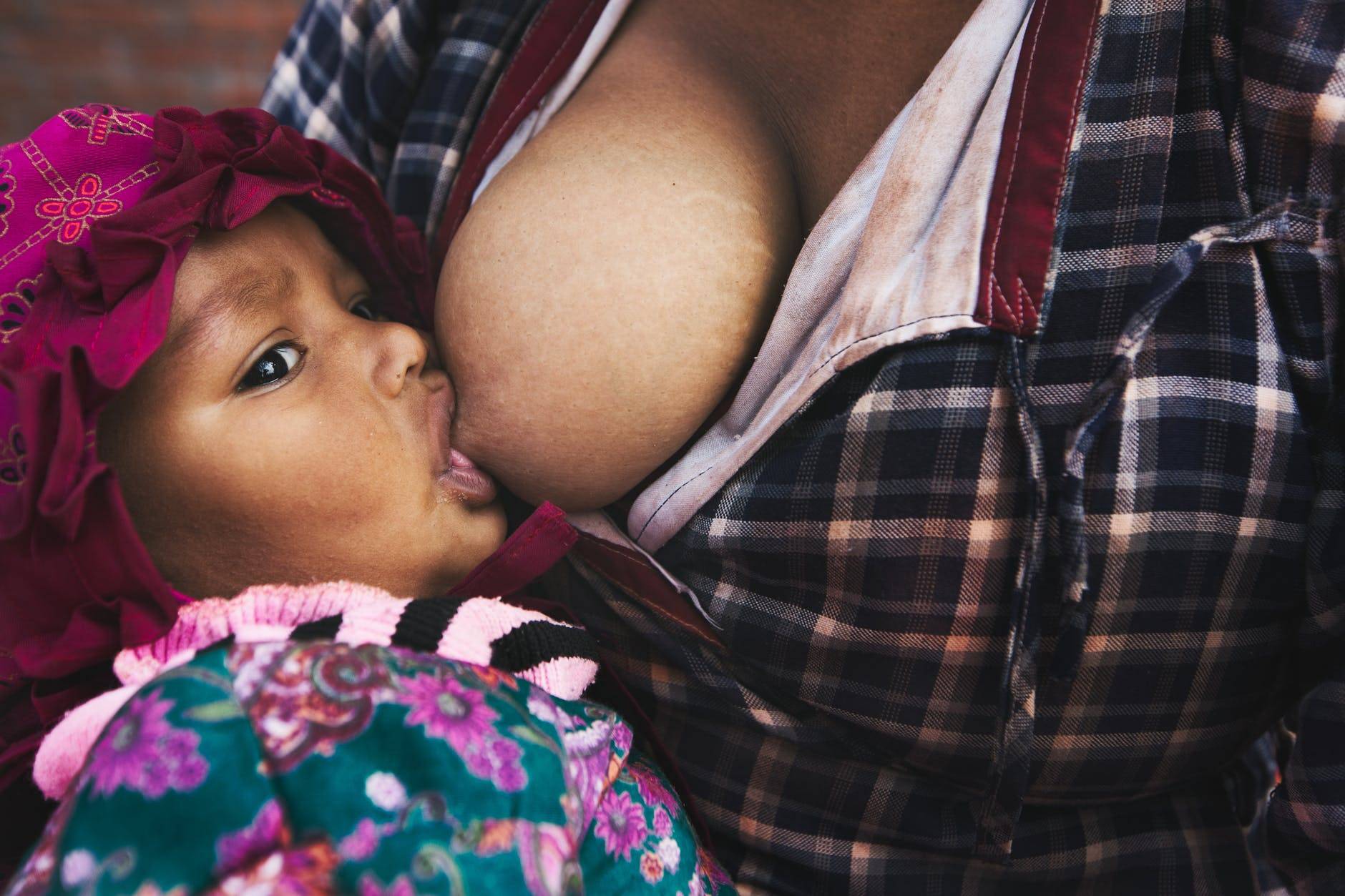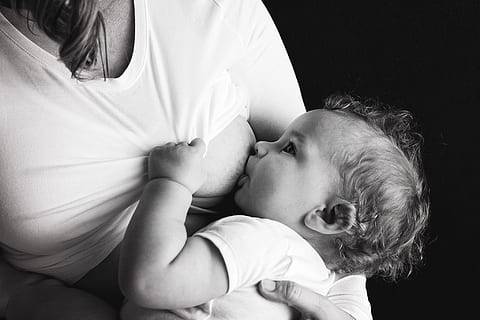














Latest posts
- Launch of new WHO report on the scope and impact of digital marketing for the promotion of breast-milk substitutes 26/04/2022
- 75th World Health Assembly 22-28th May 2022 18/04/2022
- Why formula donations can be a risk – examples from Ukraine and Myanmar 28/03/2022
- Update on Nestlé, Ukraine and WHO Foundation 25/03/2022
- Joint Statement on Ukraine crisis – protecting mothers and children 09/03/2022
- WHO Model law for the European Region 03/03/2022
- Marketing the $55 billion formula milk industry – How marketing influences our decisions on infant feeding. 22/02/2022
- Infant feeding in emergencies – links to blogs 20/02/2022
- FDA Warns Consumers about Abbott’s Powdered Infant Formula 18/02/2022
- IBFAN calls for immediate halt to an unethical formula study in Uganda and Guinea-Bissau 16/02/2022
Breastfeeding is a child survival strategy
Breastfeeding is vital to a child’s lifelong health, and reduces costs for health facilities, families, and governments. Breastfeeding within the first hour of birth protects new-born babies from infections and saves lives. Infants are at greater risk of death due to diarrhoea and other infections when they are only partially breastfed or not breastfed at all. Breastfeeding also improves IQ, school readiness and attendance, and is associated with higher income in adult life. It also reduces the risk of breast cancer in the mother.
“Breastfeeding saves lives. Its benefits help keep babies healthy in their first days and last well into adulthood,” says UNICEF Executive Director Henrietta H. Fore. “But breastfeeding requires support, encouragement and guidance. With these basic steps, implemented properly, we can significantly improve breastfeeding rates around the world and give children the best possible start in life.”
1. https://www.unicef.org/press-releases/who-unicef-issue-new-guidance-promote-breastfeeding-globally
Skin to skin and early initiation
Whether delivery takes place in a hut in a rural village or a hospital in a major city, putting new-borns to the breast within the first hour after birth gives them the best chance to survive, thrive and develop to their full potential. Skin-to-skin contact immediately after birth until the end of the first breastfeeding has many other benefits as well. It has been shown to increase the chances that babies are breastfed, to extend the length of breastfeeding, and also to improve rates of exclusive breastfeeding. Early initiation of breastfeeding, within one hour of birth, protects the new-born from acquiring infections and reduces new-born mortality. Starting breastfeeding early increases the chances of a successful continuation of breastfeeding.
- https://www.unicef.org/press-releases/who-unicef-issue-new-guidance-promote-breastfeeding-globally
- https://www.unicef.org/stories/breastfeeding-first-hour-birth-what-works-and-what-hurts
Importance of exclusive breastfeeding and complementary feeding
Importance of exclusive breastfeeding and complementary feeding
UNICEF and WHO recommend exclusive breastfeeding for the first six months of life, starting within an hour of birth. Continuing to breastfeed exclusively – without any other food – for the first six months promotes sensory and cognitive development, and protects babies against infectious and chronic diseases. Exclusive breastfeeding for six months has many benefits for the infant and mother. Chief among these is protection against gastrointestinal infections and malnutrition, which are observed not only in developing but also industrialized countries.
However, today, only 41% of infants 0–6 months old are exclusively breastfed, a rate WHO Member States have committed to increasing to at least 50% by 2025. Inappropriate marketing of breast-milk substitutes continues to undermine efforts to improve breastfeeding rates and the COVID-19 crisis is intensifying the threat.
Continued breastfeeding for two years and beyond
Continued breastfeeding for two years and beyond:

HIV and infant feeding
Mothers known to be HIV-infected (and whose infants are HIV uninfected or of unknown HIV status) should exclusively breastfeed their infants for the first 6 months of life, introducing appropriate complementary foods thereafter, and continue breastfeeding.
Mothers living with HIV should breastfeed for at least the first 12 months and may continue breastfeeding for up to 24 months or beyond (similar to the general population) while being fully supported for Anti-retroviral therapy (ART) adherence (see the WHO Consolidated guidelines on the use of antiretroviral drugs for treating and preventing HIV infection for interventions to optimize adherence)
HIV and Infant Feeding:
Mother-to-child transmission of HIV is the primary mode of HIV infection in infants. Transmission can occur during pregnancy, birth, or through breastfeeding. Decisions on whether or not HIV-infected mothers should breastfeed their infants is generally based on comparing the risk of infants acquiring HIV through breastfeeding. This may also increase the risk of death from malnutrition, diarrhoea and pneumonia if the infants are not exclusively breastfed, especially where mothers do not meet the following conditions for safe replacement feeding:
- safe water and sanitation are assured at the household level and in the community, and, the mother, or other caregiver can reliably provide sufficient infant formula milk to support normal growth and development of the infant,
- The mother or caregiver can prepare it cleanly and frequently enough so that it is safe and carries a low risk of diarrhoea and malnutrition, and
- the mother or caregiver can, in the first six months, exclusively give infant formula milk, and,
- the family is supportive of this practice, and,
- the mother or caregiver can access health care that offers comprehensive child health services.
Accumulating evidence has shown that giving antiretroviral medicines to the mother or the infant can significantly reduce the risk of HIV transmission through breastfeeding. National health authorities can refer to this evidence when formulating a strategy on infant feeding.
WHO recommendations
Mothers known to be HIV-infected should be provided with lifelong antiretroviral therapy or antiretroviral prophylaxis interventions to reduce HIV transmission through breastfeeding.
National or sub-national health authorities should decide whether health services will principally counsel mothers known to be HIV-infected to either breastfeed and take antiretrovirals, or, avoid all breastfeeding.
Related Links:
- https://apps.who.int/iris/bitstream/handle/10665/208825/9789241549684_eng.pdf?sequence=1&isAllowed=y
- Avert PREGNANCY, CHILDBIRTH & BREASTFEEDING AND HIV
- CDC HIV and Pregnant Women, Infants, and Children 2019
- Guideline Updates on HIV and Infant Feeding -The duration of breastfeeding and support from health services to improve feeding practices among mothers living with HIV– 2016
- HIV and Infant Feeding- Global Status of Policy and Programmes based on World Breastfeeding Trends Initiative assessment findings from 57 countries – 2015
- HIVand Infant Feeding – An information booklet for policy and programme managers in India, 2013
- IBFAN Asia Position Statement on HIV and Infant Feeding– 2012
- Guideline on HIV and infant feeding – 2010
- The study which has been published in the New England Journal Of Medicine– June 2010
- HIV and infant feeding Revised Principles and Recommendations Rapid Advice– November 2009
- Guidance on Infant feeding and HIV in the context of refugees and displaced populations – Version 1.1 NEW!!– June 2009
- Guidance on Infant Feeding and HIV in context of refugees and displaced populations – 2008
- Quality of infant feeding counselling for HIV+ mothers in Brazil– 2007
- WHO HIV and IF Technical Consultation– October 2006
- Effect of Breastfeeding on Mortality among HIV-Infected Women – WHO statement– June 2001
- Saviours or culprits? HIV, infant feeding, and commercial interests. Article by Tessa Martyn published in The Health Exchange– April 2001

Protecting Breastfeeding during COVID-19
Mother and infant should still be enabled to remain together while rooming-in throughout the day and night and to practice skin to skin contact (including kangaroo mother care), whilst establishing breastfeeding. The mother should adhere to Covid-19 protocols. There is no evidence of transmission of COVID-19 in breastmilk.
Breastfeeding protects new-borns from getting sick and also helps protect them throughout their infancy and childhood. Breastfeeding is particularly effective against infectious diseases because it strengthens the immune system by directly transferring antibodies from the mother. As with all confirmed or suspected COVID-19 cases, mothers with any symptoms who are breastfeeding or practicing skin-to-skin contact should take precautions. (Source WHO).
Related Links:
- https://www.who.int/publications/i/item/WHO-2019-nCoV-Sci_Brief-Breastfeeding-2020.1
- https://www.unicef.org/southafrica/reports/infant-and-young-child-feeding-context-covid-19-eastern-central-and-southern-africa
- https://www.unicef.org/documents/infant-and-young-child-feeding-context-covid-19
- https://www.unicef.org/eap/breastfeeding-during-covid-19

